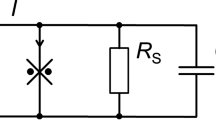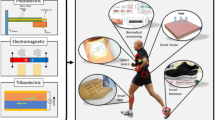Abstract
Processor thermal control in real-time systems is crucial because overheated processors may result in critical performance degradation or even system failure. The main challenges in processor thermal control in real-time systems are as follows: (i) the need to satisfy both real-time and thermal constraints; (ii) uncertain system dynamics; and (iii) thermal sensor noise. The first two issues have been resolved in substantial studies while the issue of sensor noise has not been thoroughly addressed. In this paper, we experimentally identify that even a small zero-mean sensor noise can induce a significant steady-state error in processor thermal control. This steady-state temperature error is contrary to the intuition that zero-mean sensor noise normally induces zero-mean fluctuations around the target temperature. We rigorously analyze the phenomenon based on the stochastic averaging theory and quantify the error in a closed form in terms of noise statistics and system parameters. We propose a thermal control architecture for effectively eliminating the thermal error and tightly controlling the processor temperature. Through extensive experiments, we validate the proposed architecture.

















Similar content being viewed by others
Notes
We have chosen three standard deviations in an arbitrary manner. We can use a different value if needed. However, use of too high a margin value slows down the transient of temperature control. Three standard deviations can eliminate NITE substantially while at the same time causing little degradation of the transient performance of the temperature control.
References
Ahmed R, Ramanathan P, Saluja KK (2016) Necessary and sufficient conditions for thermal schedulability of periodic real-time tasks under fluid scheduling model. ACM Trans Embed Comput Syst (TECS) 15(3):49
Avirneni NDP, Ramesh PK, Somani AK (2016) Utilization aware power management in reliable and aggressive chip multi processors. IEEE Trans Comput 65(3):979–991
Bai EW, Fu LC, Sastry SS (1988) Averaging analysis for discrete time and sampled data adaptive systems. IEEE Trans Circuits Syst 35(2):137–148
Becker M, Sandström K, Behnam M, Nolte T (2014) Dynamic power management for thermal control of many-core real-time systems. In: Proc. workshop on adaptive and reconfigurable embedded systems (APRES)
Bellosa F, Weissel A, Waitz M, Kellner S (2003) Event-driven energy accounting for dynamic thermal management. In: Proc. workshop on compilers and operating systems for low power (COLP)
Beneventi F, Bartolini A, Tilli A, Benini L (2014) An effective gray-box identification procedure for multicore thermal modeling. IEEE Trans Comput 63(5):1097–1110
Chantem T, Hu XS, Dick RP (2011) Temperature-aware scheduling and assignment for hard real-time applications on mpsocs. IEEE Trans Very Large Scale Integr VLSI Syst 19(10):1884–1897
Chu HH, Tsai TH, Chen YS (2012) Thermal-aware service rate adjustment for cyber-physical systems. In: Proc. international conference on anti-counterfeiting, security and identification (ASID)
Cui Y, Zhang W, He B (2017) A variation-aware adaptive fuzzy control system for thermal management of microprocessors. IEEE Trans Very Large Scale Integr VLSI Syst 25(2):683–695
Eun Y, Hamby ES (2014) Noise induced loss of tracking in systems with saturating actuators and anti-windup. ASME J Dyn Syst Meas Control 136(5):p054501 (6 pages)
Ferreira AP, Mosse D, Oh JC (2007) Thermal faults modeling using a rc model with an application to web farms. In: Proc. Euromicro conference on real-time systems (ECRTS)
Floyd MS, Ghiasi S, Keller TW, Rajamani K, Rawson F, Rubio JC, Ware MS (2007) System power management support in the ibm power6 microprocessor. IBM J Res Dev 51(6):733–746
Fu Y, Kottenstette N, Chen Y, Lu C, Koutsoukos XD, Wang H (2010) Feedback thermal control for real-time systems. In: Proc. real-time and embedded technology and applications symposium (RTAS)
Fu Y, Kottenstette N, Lu C, Koutsoukos XD (2012) Feedback thermal control of real-time systems on multicore processors. In: Proc. international conference on embedded software (EMSOFT)
Goodwin GC, Graebe SF, Salgado ME (2000) Control system design. Prentice Hall, Englewood Cliffs
Hettiarachchi PM, Fisher N, Ahmed M, Wang LY, Wang S, Shi W (2012) The design and analysis of thermal-resilient hard-real-time systems. In: Proc. real-time and embedded technology and applications symposium (RTAS)
Intel (2009) i7-800 and i5-700 desktop processor series and lga1156 socket: thermal/mechanical specifications and design guidelines
Khairnasov S, Naumova A (2015) Heat pipes application in electronics thermal control systems. Front Heat Pipes (FHP)
Kim D, Park KJ, Eun Y, Son SH, Lu C (2015) When thermal control meets sensor noise: analysis of noise-induced temperature error. In: Proc. real-time and embedded technology and applications symposium (RTAS), pp 98–107
Kornaros G, Pnevmatikatos D (2013) A survey and taxonomy of on-chip monitoring of multicore systems-on-chip. ACM Trans Des Autom Electron Syst (TODAES) 18(2):17:1–17:38
Kottenstette N, Hall JF III, Koutsoukos X, Antsaklis P (2011) Digital control of multiple discrete passive plants over networks. Int J Syst Control Commun 3(2):194–228
Krishna C, Koren I (2017) Thermal-aware management techniques for cyber-physical systems. Sustain Comput 15:39–51
Long J, Memik SO, Memik G, Mukherjee R (2008) Thermal monitoring mechanisms for chip multiprocessors. ACM Trans Archit Code Optim (TACO) 5(2):9
Mohaqeqi M, Kargahi M, Fouladi K (2016) Stochastic thermal control of a multicore real-time system. In: Proc. 24th Euromicro international conference on parallel, distributed, and network-based processing (PDP), pp 208–215
Pathan RM (2017) Real-time scheduling algorithm for safety-critical systems on faulty multicore environments. Real-Time Syst 53(1):45–81
Prakash A, Amrouch H, Shafique M, Mitra T, Henkel J (2016) Improving mobile gaming performance through cooperative cpu-gpu thermal management. In: Proceedings of the 53rd annual design automation conference
Rotem E, Hermerding J, Cohen A, Cain H (2006) Temperature measurement in the intel® coretm duo processor. In: Proc. international workshop on thermal investigations of ICs and systems (THERMINIC)
Saen M, Osada K, Misaka S, Yamada T, Tsujimoto Y, Kondoh Y, Kamei T, Yoshida Y, Nagahama E, Nitta Y, et al (2007) Embedded soc resource manager to control temperature and data bandwidth. In: Proc. international solid-state circuits conference (ISSCC)
Segovia VR, Kralmark M, Lindberg M, Årzén KE (2011) Processor thermal control using adaptive bandwidth resource management. In: Proc. World Congress of the international federation of automatic control (IFAC)
Sheikh HF, Ahmad I, Wang Z, Ranka S (2012) An overview and classification of thermal-aware scheduling techniques for multi-core processing systems. Sustain Comput 2(3):151–169
Tsai TH, Chen YS, He XX, Li CY (2017) Stem: a thermal-constrained real-time scheduling for 3d heterogeneous-isa multicore processors. IEEE Trans Comput
Yue J, Zhang T, Liu Y, Quan B, Tianzhou C (2012) Thermal-aware feedback control scheduling for soft real-time systems. In: Proc. international conference on high performance computing and communications & international conference on embedded software and systems (HPCC-ICESS)
Yun B, Shin KG, Wang S (2013) Predicting thermal behavior for temperature management in time-critical multicore systems. In: Proc. real-time and embedded technology and applications symposium (RTAS)
Zhou J, Wei T (2015) Stochastic thermal-aware real-time task scheduling with considerations of soft errors. J Syst Softw 102:123–133
Zhou J, Wei T, Chen M, Yan J, Hu XS, Ma Y (2016) Thermal-aware task scheduling for energy minimization in heterogeneous real-time mpsoc systems. IEEE Trans Comput Aided Des Integr Circuits Syst 35(8):1269–1282
Acknowledgements
This work was partly supported by Institute for Information & communications Technology Promotion (IITP) grant funded by the Korea government (MSIP) (2014-0-00065, Resilient Cyber-Physical Systems Research), the DGIST R&D Program of the Ministry of Science and ICT (18-EE-01), and Basic Science Research Program through the National Research Foundation of Korea (NRF) funded by the Ministry of Science, ICT & Future Planning (NRF-2016R1C1B2007899).
Author information
Authors and Affiliations
Corresponding authors
Additional information
Publisher's Note
Springer Nature remains neutral with regard to jurisdictional claims in published maps and institutional affiliations.
Rights and permissions
About this article
Cite this article
Kim, D., Lee, J., Park, KJ. et al. Analysis and elimination of noise-induced temperature error in processor thermal control. Real-Time Syst 56, 1–27 (2020). https://doi.org/10.1007/s11241-019-09342-y
Published:
Issue Date:
DOI: https://doi.org/10.1007/s11241-019-09342-y




